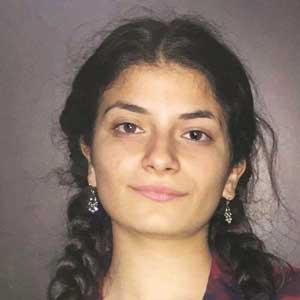1983: Searing hurt and anger. As demanded by my new stepmother, my father has just kicked me out. The new rules of engagement: No coming to the house unless invited (an unlikely prospect). Address all letters to both of us. Don’t call us; we’ll call you (maybe). Don’t live in Boston.
1984: After a year of living our relationship on these terms, I have saved up enough money to fly to Central America and enough bitterness to keep me there for years.
1986: Realizing that my energy is being consumed by anger towards my father rather than being used for important decisions about my life, I resolve to return to the U.S. to try to make things right with him. I set a date, buy a ticket, and feel myself getting wound up tighter and tighter as the day approaches. One afternoon, exhausted after a fitful night, I fall asleep and dream.
I am at a conference. The moderator of the session asks each of us to say a few things about ourselves and our work. I immediately begin rehearsing my credentials. When the first man stands up to introduce himself, I peg him as a lightweight and prepare to be unimpressed.
"I am a man of God," he says, "and I come in love."
Silence. Embarrassed little coughs. Eyes looking downward. I mentally rehearse my list of accomplishments again, waiting impatiently for this embarrassing fellow to sit down so I can show my stuff.
The disconcerted moderator tries to reassert control. She clears her throat and says firmly, "Yes, well, could you please tell us the two most important things about yourself?"
"Yes," the man says in his doddering, insistent way. "I am a man of God, and I come in love. Those are the two most important things."
Suddenly, I see my "credentials" for what they are. I wake up, and my face burns with deep shame at how I judged the first speaker, and what I had been planning on saying.
I think that the dream is trying to tell me about how to approach my father. I resolve that rather than going in rightness, I will try to go in love.
My six weeks in Boston are miserable. My father’s anger and hostility are unrelenting, and nothing I say or do—or refrain from saying or doing—seems to change this. He seems not to notice my new attitude. I feel I have unilaterally disarmed, and he spends six weeks pounding on me. Finally, having decided that I have done all I can, I return to Costa Rica.
1987: I am sitting in meeting for worship, and the phrase "the transforming power of love" goes through my mind over and over again. Suddenly I almost laugh aloud. I realize that my whole life I have thought of the phrase as meaning, "I love, you transform." Suddenly, I realize that loving transforms the lover, not necessarily the loved! I realize that I have unconsciously thought of love as a tool to get people to do or be what I want. But in fact, love is not a tool for me to use; rather, I am to be a tool of love. Not only that, but that in the process, love will tool, reshape, and transform me.
It has never before occurred to me that my transformation is the necessary one—and the only one I have any power to accomplish.
Soon afterwards I have an additional epiphany: if my father had responded right away to my New! Improved! attitude in Boston, I would never have learned this lesson about love. I would never have realized the shallowness of my own self-serving love, nor experienced the depth of a more mature love. It even occurs to me that perhaps I should be grateful for his bullheadedness!
Over the next ten years, during which time I move back to the States, go to graduate school, and get married and start a family, there is a very slow, reasonably steady improvement in my relationship with my father. Yet our short annual visits, while more or less successful, remind me of what we don’t have. I hate measuring the success of every interaction by the bad things that haven’t happened. I yearn for more.
During the last few years of this time, I experience meeting for worship as sterile, uninspiring, and even boring for an unprecedented length of time. Accustomed to feeling called to spoken ministry at least every few months, I feel a real loss at what seems like a withdrawal of God’s messages for me. I wonder why God doesn’t seem to want to use me any more. I feel empty of the Divine Presence.
One day, I am sitting in meeting, near tears over the block I feel between me and my God. I beg for some sign of God’s presence, some message. Suddenly, I get the old, familiar feeling that I am to speak. My heart is pounding, my legs feel weak, I am breathless, and I feel utterly compelled to stand. But I have no idea what I am supposed to say. I stand, confused and scared, and suddenly blurt out that I have been blocked from the Divine for a long time, and stuck in my relationship with my father, and that I am sure the answer has something to do with forgiveness, but I don’t know how to forgive, and I don’t know how to want to forgive. I want to want to, but I don’t want to, and I just didn’t know how to get there. Abruptly, I sit down again.
My words elicit an extraordinary outpouring of prayers, wisdom, love, resources, and practical offers of help from numerous Friends. That day I commit to learning about and starting down the path of forgiveness.
Then, a milestone: at a workshop on forgiveness I sit at a table with a woman who has come for the sole purpose of challenging the idea of forgiveness. She is filled to the brim with bitterness and anger. I listen to her and think, "There but for the grace of God go I." Those at the table who have forgiven someone, in some cases for heinous offenses, are at peace in a way I deeply envy.
And another milestone: I read in a book on forgiveness—Robert D. Enright and Joanna North (eds.), Exploring Forgiveness—in which P.W. Coleman writes, "When you can’t let go of the pain, when an act of betrayal or brutality still burns in your memory, there is some unfinished business. That business is typically guilt or resentment. . . . Perhaps you realize a truth about your part of the relationship—a truth that is not very flattering. If so, you may need to own up to that and admit your mistakes." As I read it, my heart begins to race, my face reddens, and suddenly I know a truth I have kept at bay for a long time: I have deeply wronged and hurt my father.
Now, if you had asked me at any point before then if I had been perfect in our relationship, I would have acknowledged that I had made mistakes. But everything I had done wrong had seemed to me either minor or easy to explain and excuse. Most of it was innocent flailing around in pain—in no way a deliberate attempt to hurt him.
But what hits me while reading those words is that my father has experienced very deep hurt and anger as a result of my actions. And that however little I wanted to hurt him, I did, and that perhaps his behavior was just the same as mine. He probably never intended hurt, it just came out that way. Suddenly I can see for the first time how constrained his actions are by his fragile, new relationship; how his clumsy, hurtful behavior arises out of a fear of loss just like mine. For the first time, I really, truly experience my own guilt. And thus am I led across the divide into the possibility of compassion for my father. And eventually to forgiveness.
Things move quickly after this. I feel a great lifting of a burden. A spontaneous upwelling of positive feelings for my father surfaces. I write him a friendly, chatty letter—nothing profound, since he is reserved, and would not appreciate a gushy confession of my new insights. I find to my amazement that at no point in the letter do I stick in little barbs that need to be surgically removed later on with the delete key. I never feel the countervailing upwelling of petty angers and stubborn hurts. The friendliness this time is easy, genuine, and deep.
Over the next couple of years, tensions during our visits ease noticeably, and when I am in Boston for a week on other business they even invite me to spend a night at their house—for the first time in 17 years! I realize with chagrin that if a change in my attitude generates such progress, then my attitude must have been much more of the problem than I knew or had been willing to admit.
So where are we now? Our last visit was the best we have had in 17 years. There have been several painful bumps in the road, but I am learning to be grateful for them, as they become the new insights and growing edges of the spiritual self I am meant to become.
What are the growing edges?
Forgiveness isn’t accomplished once and for all, followed by easy coasting on autopilot. I see that forgiveness is a lifelong task for me, a muscle that will need a regular workout if I am not to become spiritually flabby!
Forgiveness hasn’t made my father behave as I’d like him to, nor eliminated the possibility of ongoing hurt. Every taste of success makes me hope for easy harmony. Yet I seem to need his periodic failures to be who I want him to be to remind me that the person I am responsible for transforming is me, not him.
Forgiveness has given me an extraordinarily powerful, accessible, and enlightening tool for working on other troubled relationships in my life. Not least, it has made me humble about other people’s struggles and failings. It took me 15 years to forgive my father—and I periodically fall off the wagon and have to do it over again. I am in no position to be judgemental about other people’s rate of acquiring spiritual insights.
Forgiveness has given me painful, humbling, but ultimately liberating insights into my own guilt. It has given me empathy and understanding with those who struggle with anger and forgiveness in their lives. Having experienced the release and relief that come from forgiveness, I am now more alert to other places in my life where I need to forgive, and to other ways that anger has controlled me, sapped my energy, and limited the possibilities for loving interaction.
Forgiveness has taught me a whole new category of things to be thankful for. I came to forgiveness mainly by way of failure to achieve "success" through other means. Through the process of forgiveness I gradually came to define "success" not as getting what I thought I wanted, but as learning (however painfully) something I needed to know. Now when I confront some painful circumstance, I aspire to have my first response be gratitude for the lesson, whatever it is, that this difficulty will bring.
Most of all, forgiveness has brought me back into a rich relationship with the Divine. Forgiveness has released me to be a conduit of love. I feel it flow through me from a source beyond me, bigger and deeper than any love that could originate in me. What greater gift could I receive?



